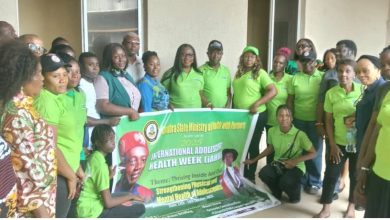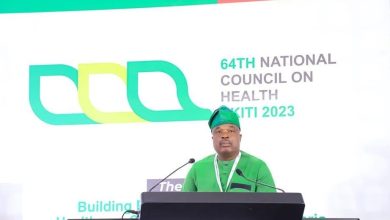Adamawa Reports 8,850 New HIV Cases in Four Years
Adamawa recorded 8,850 new HIV infections between 2022 and 2025, according to ADSACA.
Officials blamed low prevention awareness and urged residents to embrace testing and treatment programs.
The Adamawa State Agency for the Control of AIDS (ADSACA) has revealed that 8,850 new HIV infections were recorded in the state between 2022 and 2025.
The Director of Research, Monitoring, and Evaluation at the agency, Abdullahi Adamu, shared the figure on Thursday during a media meeting in Yola focused on improving public awareness and preventive behavior.
Adamu said surveillance data show a steady rise in new infections across the state within the past three years. He explained that in 2022, the agency recorded more than 2,700 new infections; in 2023, over 2,500; in 2024, about 2,227; and from January to June 2025, 1,423 new cases have already been identified.
He described the trend as worrying, noting that the state must review its HIV prevention strategies and adopt more effective approaches. “We have preventive options like abstinence, consistent condom use, and Pre-Exposure Prophylaxis (PrEP), but many people are not using them properly,” he said.
Adamu also mentioned that over 40,000 people living with HIV are currently on treatment in Adamawa, with about 93 percent achieving viral suppression. He added that 400 HIV-related deaths were recorded in 2024.
He urged pregnant women to attend antenatal clinics to help prevent mother-to-child transmission. According to him, in 2024, a total of 509 pregnant women who registered for antenatal care were placed on treatment, including 180 who were newly infected.
Adamu disclosed that the state government has procured more than 40,000 HIV testing kits and encouraged residents to take advantage of free testing services available at hospitals and community centres.
The North-East Zonal Coordinator of the National Agency for the Control of AIDS (NACA), John Tobias, also spoke at the event. He called on Nigerians to take greater ownership of the national HIV response to ensure sustainability, noting that a recent U.S. government stop-work order affected donor-supported health programs.
“This is a wake-up call for us to take responsibility for our own health,” Tobias said, describing the 1,423 new infections recorded in the first half of 2025 as preventable. He stressed that identifying and treating all people living with HIV would eliminate new transmissions and help Nigeria meet its target of ending new infections by 2030.
He also urged journalists to help raise awareness and promote responsible behavior in the fight against HIV/AIDS.



